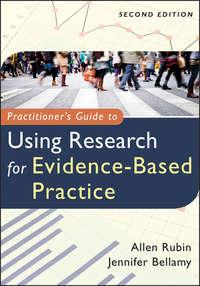Practitioner′s Guide to Using Research for Evidence-Based Practice

Bellamy Jennifer and Rubin Allen
Genre:general psychology
Language:English
Type:PDF book
Publisher:John Wiley & Sons Limited
Publication date:09.12.2022
Price:$105.94
Views:59
Praise for the previous edition «An extraordinary and important book. Its approach to evidence-based practice (EBP) is very sound, realistic, and generous to the complexities of everyday practice. Reading and using this book is a must.» —Haluk Soydan, PhD, School of Social Work, University of Southern California «This book has the potential to change practice in the helping professions. Rather than focusing on how to conduct research, Practitioners Guide to Using Research for Evidence-Based Practice instead shows readers how to understand the literature.... [The] generous use of humor and the inclusion of simple, practice-relevant examples make this book a pleasure to read.» —Aron Shlonsky, PhD, Faculty of Social Work, University of Toronto «I particularly like the integration of research methods and EBP; this is the books major innovation in my mind as it allows readers to see the connections between research and practice. [The book] also succeeds by taking very complex EBP principles and explaining them in practical terms.» —Jeffrey M. Jenson, PhD, Graduate School of Social Work, University of Denver Hands-on guidance for research-informed practice and practice-informed research Now in a second edition, Practitioners Guide to Using Research for Evidence-Based Practice offers a clinician-oriented approach to appraising and using research as part of the EBP process. This accessible guide presents essential and practical guidance on how to integrate research appraisal into EBP endeavors to determine which interventions, policies, and assessment tools are supported by the best evidence. It introduces: Increased attention to macro-level EBP questions and studies New discussion on defining EBP, including the addition of a transdisciplinary model of EBP More detailed guidance on EBP question formulation and conducting Internet searches, including the PICO framework New content on multivariate designs, including propensity score matching, and on mixed-model and mixed-methods studies